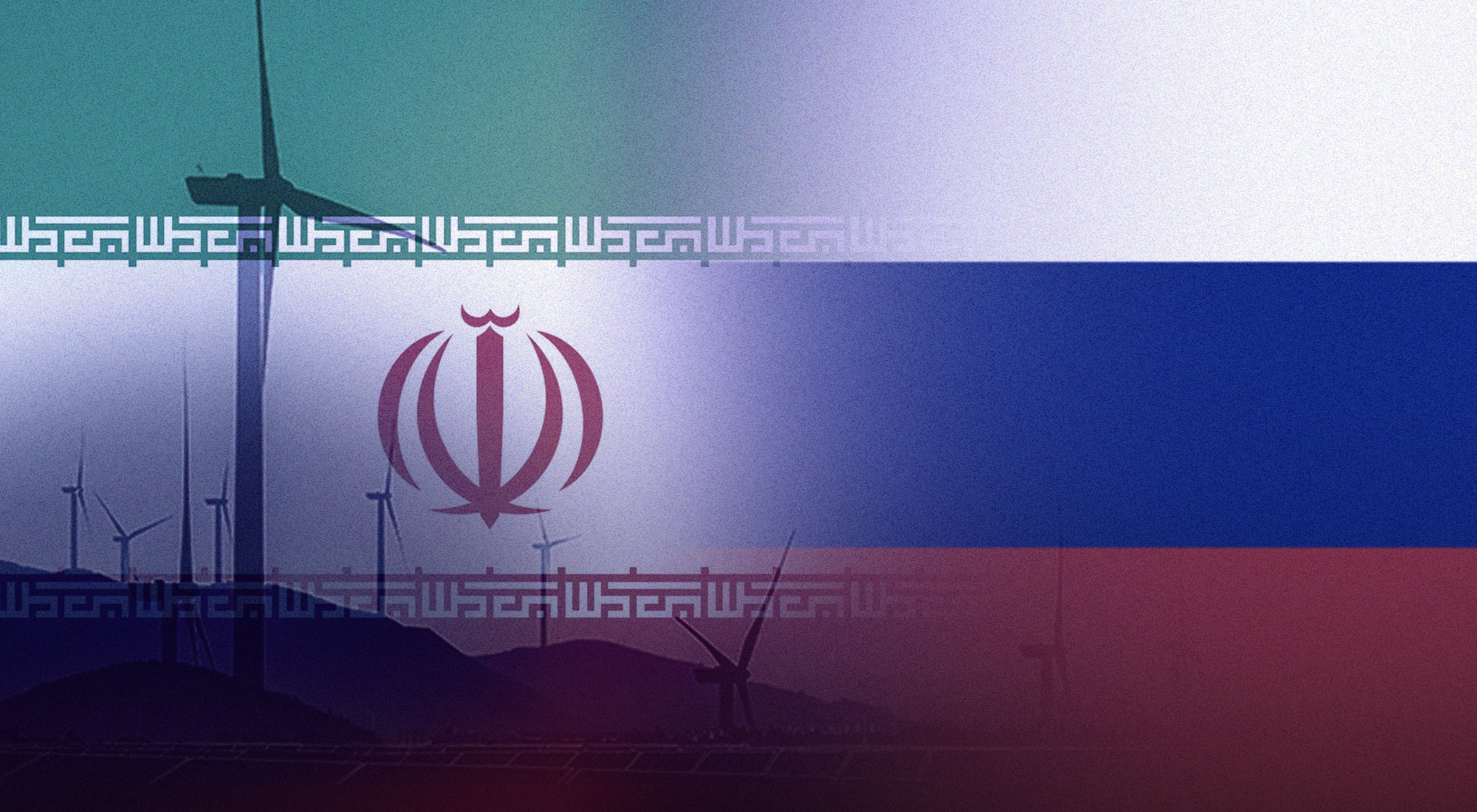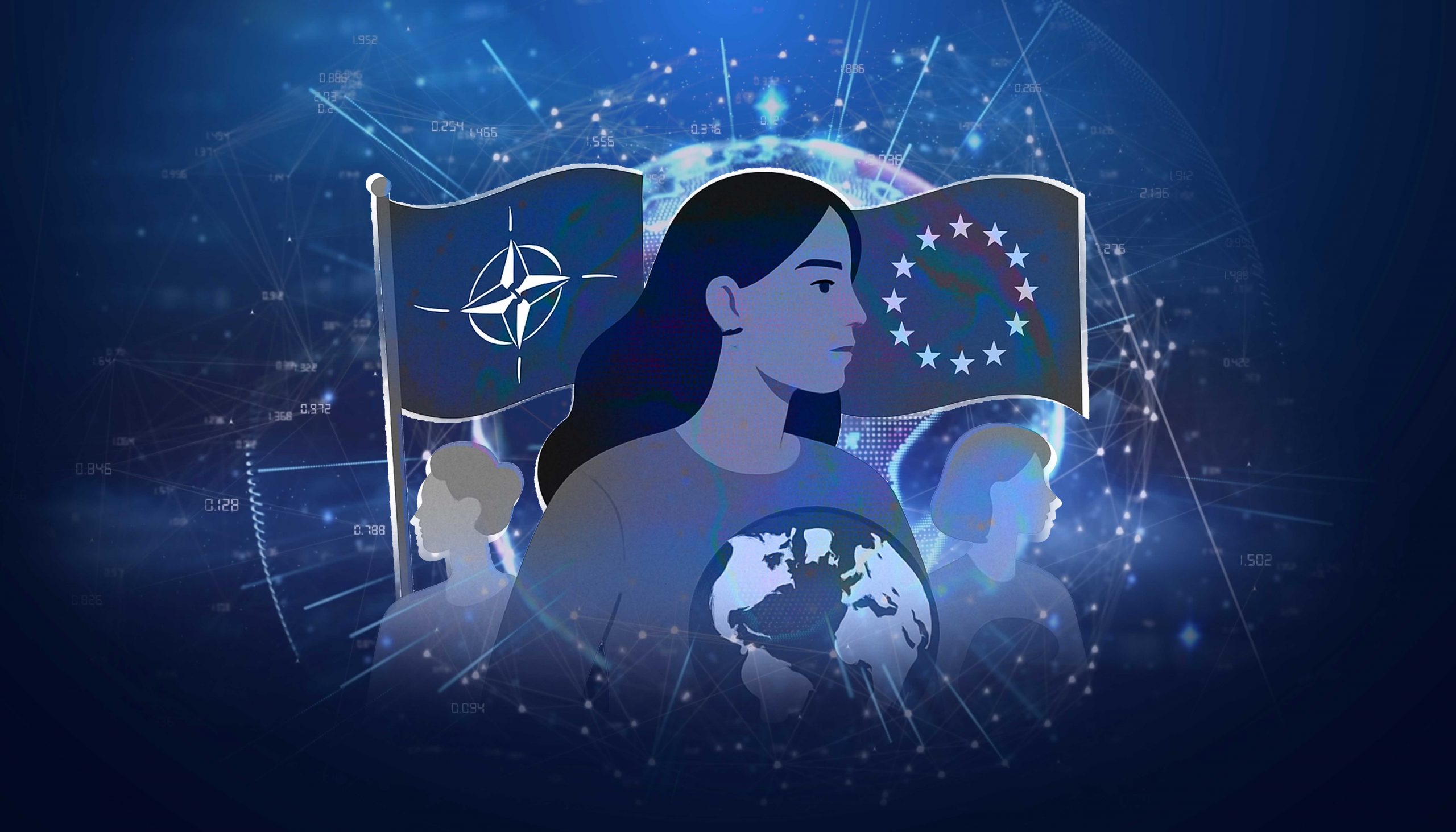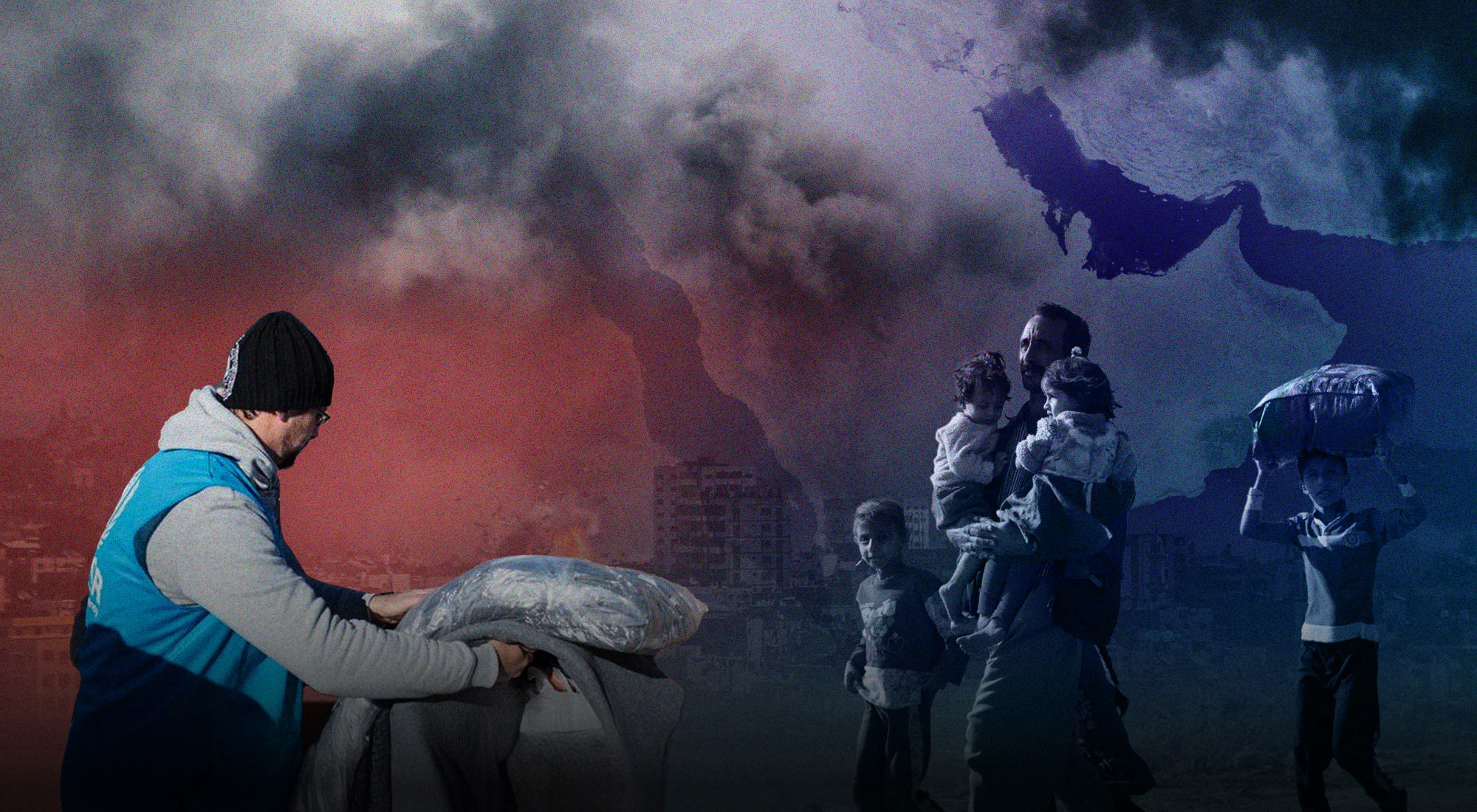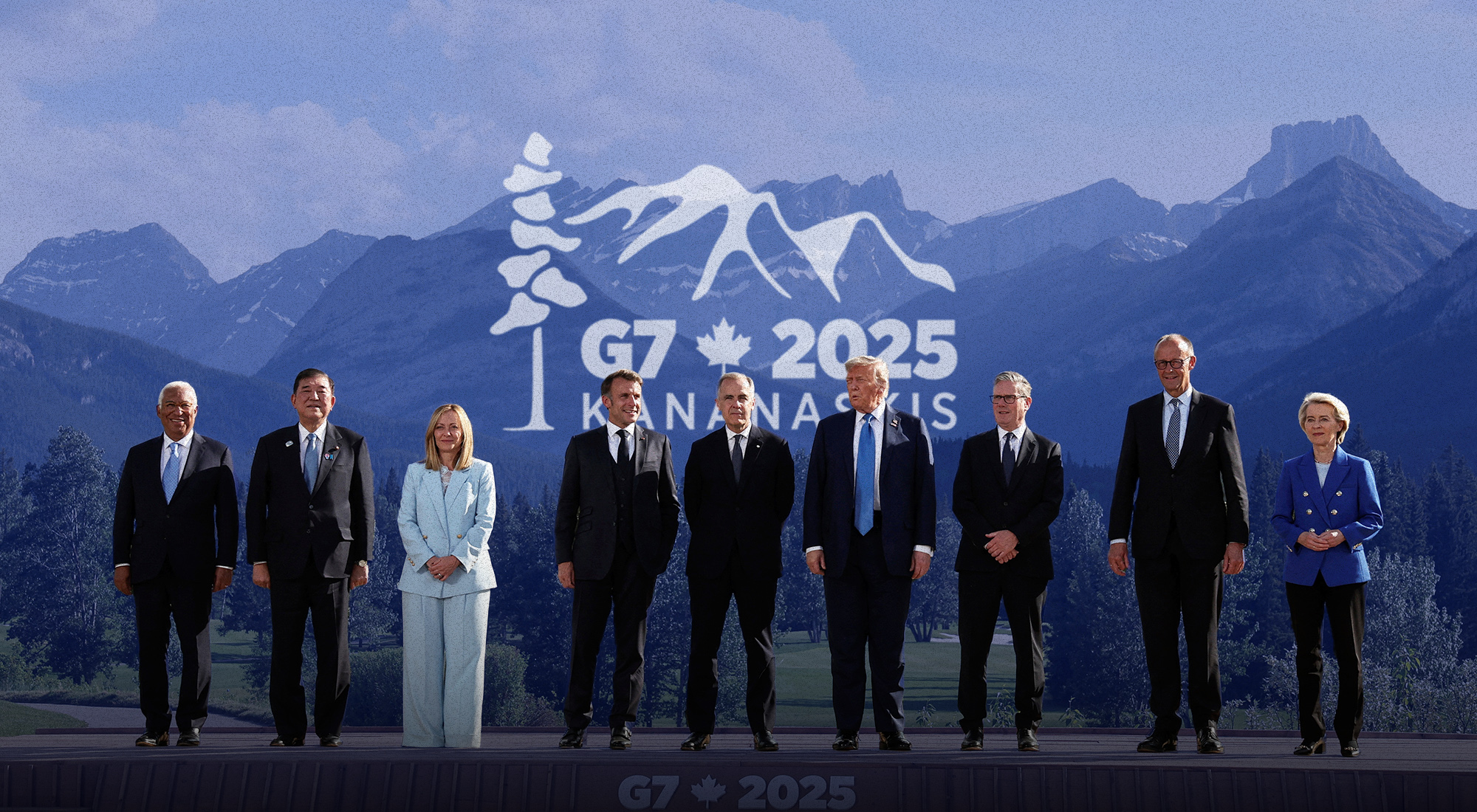Now that Brazil has elected Luis Inácio Lula da Silva as its next president, will it herald a change in the country’s foreign policy, particularly in relation to the Middle East? While some of his supporters at home and abroad would like to see him reset the country’s foreign policy and adopt a similarly activist approach to the version he pursued during his first presidency in 2003-2010, it is unlikely that will happen.
Although Lula sought a prominent role for Brazil in the region’s politics – in particular as a mediator of conflict between Israel and the Palestinians and between Iran and the international community over its nuclear program – it is unlikely he will be able to do anything similar this time around. The brutal fact is that structural factors at home and abroad are likely to constrain Lula’s ambitions. In short, he is more likely to follow the direction taken by his election rival and predecessor, President Jair Bolsonaro, who also found his own efforts to chart a different path curtailed.
Yet, even if Lula is unable to make dramatic changes, Brazil’s role in the Middle East could potentially become more important in the coming years, both as a destination for investment by Gulf states and as a vital source of commodities, as the issue of food security becomes more salient. Indeed, in the case of the latter, food security could be the means by which Brazil’s position in the Middle East is strengthened – a goal that Lula has long pursued.
Brazil’s search for autonomy and Lula’s diversification strategy
To understand why Lula is unlikely to shift policy and how his approach differs from Bolsonaro’s, it helps to have a broader sense of Brazilian foreign policy. Since 1945, Brazil’s foreign policy has been largely framed around a struggle for autonomy, in particular an ability to put distance between itself and the hegemonic behemoth to the north, the United States.[1] During this time, it has attempted to do so in several ways, sometimes standing apart from the US, sometimes trying to participate with American-led projects like globalization on its own terms, and sometimes – as Lula tried to do – by diversifying Brazil’s relations with other countries to counter the US.[2]
Lula’s diversification strategy was helped by the precipitous conditions at the time. Brazil’s economy started to boom in the mid-2000s. Trade and commodity prices were rising, which generated greater revenue and more foreign direct investment. Brazil’s profile as a major emerging market was also boosted by its presence in new international forums like the BRICS.
Lula aimed to use Brazil’s growing status to take on the role of a global leader. He promoted development and extended aid and trade to countries in the Global South, Africa, and Asia. As part of this outreach, he made his first trip to the Middle East in December 2013. As well as looking to increase economic opportunities with the region, he also put relations on a more formal and institutional setting: in 2005, Brasília played host to the first South American-Arab (known by the acronym ASPA in Portuguese and Spanish) summit, which brought countries from the two regions together.[3]
The most notable result from these efforts was a boost in Brazilian trade and investment with the Arab world. Although trade with the Arab League countries had already grown before Lula, from $3.4 billion to $5.1 billion between 1991 and 2002, during his presidency it exploded, rising from $5.6 billion in 2003 to $26.6 billion by 2012 (Figure 1). Much of this increased trade was down to commodities, in particular Brazilian agricultural exports like meat, corn, and soy, with fuels and fertilizers coming the other way.[4]
At the same time, it is important to put trade with the Middle East in context. Overall, the Arab world has only constituted around 4 to 6 percent of Brazil’s overall trade. The American and European markets remain far larger, along with China, which grew to become Brazil’s largest trading partner by the mid-2010s (Figure 2).
Similarly, Brazil’s primary sources of investment have historically been and remain American and European companies. Investment from other countries is still relatively low, despite Lula’s efforts to diversify relations. In the case of investment from the Middle East, overall figures are extremely small: whereas total investment inflows to Brazil in 2017 and 2018 were $68.9 billion and $$78.1 billion, respectively, publicly recorded inflows from Gulf states to the whole of Latin America amounted to only $4.7 billion between 2005 and 2018.[5]

Figure 1: Brazil’s Trade, 1990-2020 (US$ millions)[6]

Figure 2: Brazil’s Trade, 1990-2020 (% of total)[7]
As well as increasing trade and investment, Lula wanted Brazil to help resolve regional strife. He indicated his willingness to help mediate between Israel and the Palestinians and also helped broker an agreement over Iran’s nuclear program, which if implemented, would see Iran enrich uranium for civilian purposes under international supervision.[8]
Lula’s efforts soon hit the buffers for several reasons. Israel refused any third-party mediator other than the US. Meanwhile, the Americans and Europeans ignored the Iranian agreement. Instead, they chose to confront Iran at the UN and introduced their own “secondary” sanctions on top of the ones imposed by the UN.[9] In short, Lula had to face the fact that Brazil’s capacity for autonomy in foreign affairs was limited by factors beyond his control.
Foreign affairs during the “Hangover Decade”
After Lula left office, Brazilian foreign policy waned, both generally and in the Middle East. The Arab uprisings in 2011 contributed towards this as well. During this period, contact between the region and Latin America diminished. The ASPA summit that was scheduled for Lima in 2011 was postponed for a year; after that, only one further one was held, in Riyadh, in 2015.
Brazil’s declining foreign policy could be attributed to both personnel changes and a darkening international climate. Lula’s handpicked successor, Dilma Rousseff (2010-2016), was less personally involved in foreign affairs. At the same time, the scope for Brazilian autonomy diminished as an economic downturn began to bite.[10] Much like the rest of Latin America, after 2010, Brazil’s GDP growth slowed as commodity prices fell and the government failed to adjust its fiscal policies accordingly. According to Brian Winter, Editor of Americas Quarterly, the period was best captured as the “Hangover Decade” during which the region “struggled to recover from the excesses and unrealistic expectations of the previous decade.”[11]
By the mid-2010s, Brazil was in a recession. That sorry state was further compounded by a political crisis when revelations of corruption became public after 2014, through the Operation Carwash scandal. What started as an investigation into money laundering eventually revealed that much of the money was coming from Petrobras, the state oil company. The money involved overpayments by Petrobras for contracts that formed slush funds, which the officials at Petrobras used to pay the political parties who had appointed them, thus supporting their election campaigns.[12] Politicians from across the political spectrum were caught up in it, including Lula himself, who was accused of money laundering and corruption. Although not directly implicated in the scandal, Rousseff had served on the Petrobras board of directors before 2010. In 2016, she was impeached for allegedly manipulating national accounts to hide a government shortfall. Her vice president and replacement, Michel Temer, saw out her term.
Both presidents pursued less active and effective foreign policies; this was due in part to their own personalities, but also because of the domestic and international constraints the country faced as a result of the recession and the political crisis.[13] Notwithstanding these challenges, the Middle East was the site of a notable and early Brazilian diplomatic initiative early on in the Rousseff presidency. As the uprisings in the Arab world took hold in Libya in 2011, its then leader, Muammar Gaddafi, responded with force. Brazil was then a temporary member of the UN Security Council and voted for Resolution 1970, which condemned the violence, imposed sanctions on Gaddafi’s regime, and referred the case to the International Criminal Court.
Although Brazil later abstained on Resolution 1973, which opened the door to external intervention through NATO forces and the imposition of a no-fly zone, Brazil’s UN representatives made an important contribution in the field of conflict. They proposed an addendum to the Responsibility to Protect (R2P) – the international norm to halt genocide, war crimes, and crimes against humanity – by putting forward a Responsibility while Protecting (RwP) that would set limits and accountability to UN actions. Despite the proposal, however, neither its UN representatives nor Rousseff pushed the initiative further.[14]
Bolsonaro and tensions between ideology and pragmatism
Bolsonaro’s election victory in 2018 was helped by the economic and political turmoil in Brazil at the time. Bolsonaro’s campaign sought to pin the blame on Lula and the people around him, using inflammatory and moralistic language about the former president. Bolsonaro’s adoption of such a tone reflected part of his base, including evangelical Christians. In addition, Bolsonaro drew support from those who wanted greater public security, including by the armed forces, as well as from backers from the large landowning class and agribusiness people. This rightwing electoral coalition was characterized as “beef, bible and bullets.”[15]
Despite this support, Bolsonaro’s election was by no means certain. That only became possible when Lula was removed from standing. In 2017, Lula was sentenced for accepting bribes, money laundering, and corruption. In 2021, the decision was reversed by the Supreme Court, on the grounds that the judge who convicted him, Sergio Moro, was biased against him.[16] The quashing of the verdict against Lula and the return of his political rights meant he was free to run for president this year.
In contrast to previous administrations, Bolsonaro abandoned Brazilian autonomy in foreign policy. As president, Bolsonaro embraced the US and then President Donald Trump. The two saw each other as kindred souls, embracing rightwing policies and adopting a populist outsider stance – even though Bolsonaro had already served a 28-year career in congress before becoming president.[17]
Bolsonaro’s association with Trump and his ilk was not welcomed globally. Bolsonaro was also a climate-change skeptic and chose to cut funding for environmental agencies as well as turn a blind eye to deforestation in the Amazon, which led to a loss of rain forest equivalent to the size of Belgium during his term.[18] In addition, his rejection of science and mismanagement of the Covid pandemic at home – which has so far led to more than 680,000 deaths – was further compounded by his suspicion and criticism of international efforts by the WHO and others. Over time, he came to be seen as an international pariah.[19]
Bolsonaro did not seem to care. Although the US was the guiding star of Bolsonaro’s foreign policy, he cultivated similarly inclined leaders to Trump, including Viktor Orban in Hungary and Benjamin Netanyahu in Israel. Bolsonaro’s interest in Netanyahu partially reflected his evangelical Christian support, which favored a closer relationship with Israel. To seal this and satisfy his base, Bolsonaro made a similar pledge to Trump’s of two years earlier: he proposed to move Brazil’s embassy from Tel Aviv to Jerusalem.[20]
While the proposal was welcomed inside Israel and among Bolsonaro’s supporters, it was met with dismay by his domestic rivals and the Arab world. Not long after Bolsonaro’s election, the Arab League made it clear that pushing ahead with the embassy move would violate international law and several UN Security Council resolutions, since any decision on Jerusalem’s status could only be the result of a peace settlement between Israel and the Palestinians.
According to Silvia Ferabolli, an economics and international relations lecturer at the Federal University of Rio Grande do Sul, who was interviewed for this article, the Arab League went further than condemning the move. She claims that it warned senior officials at Itamaraty, Brazil’s foreign ministry, that the country could face a boycott if the embassy were moved. If that happened, Brazil’s main trade with the Arab world – namely meat and poultry exports – would be adversely affected.
The debate over the embassy move exposed a central tension at the heart of the Bolsonaro administration. On one side were the ideologues, who were opposed to globalization and the left, while on the other side were those who were more pragmatic.[21] Among the latter was Bolsonaro’s vice president, Hamilton Mourão, who acted as a “parallel foreign minister” to the actual (and ideological) foreign minister, Ernesto Araújo, until the latter’s resignation in 2021.[22]
The pragmatists raised the alarm over the concern that was sweeping the Brazilian meat and poultry industry, following Bolsonaro’s election and pledge to move the embassy. Large firms like BRF and JBS were fearful that a boycott would limit access to the Arab and halal markets, which constituted a sizeable proportion of their businesses. Rubens Hannun, the former president of the Brazil-Arab Chamber of Commerce, said at the time: “We do not want any noise in this relationship [between Brazil and the Arab world]…We are afraid that would open a door for the competition.”[23] Consequently, even before Bolsonaro made his official visit to Israel early in his term, in March 2019, he had been forced to row back. Instead of moving the embassy, Bolsonaro proposed to open a trade office in Jerusalem.[24]
The embassy debacle arguably ended the prospect for a more ideologically oriented approach towards the Middle East. Instead, the Bolsonaro administration concentrated on promoting the economic dimension of the relationship and the prospects for mutually beneficial economic exchange between Brazil and the Arab world.[25] That approach became more urgent during and after the pandemic, when Brazil’s GDP growth fell by 5 percent in 2020.
Looking ahead: Lula redux?
Although Lula will be Brazil’s next president, it is unlikely that this will mean a return to the political activism of his first two terms in the Middle East. While he may want to do so, the reasons that will prevent it from happening are mainly structural. Simply put, the Brazil Lula will govern is not the same as it was 20 years ago, and nor is Brazil’s position in the international system comparable to what it was then.
Lula will have both political and economic problems to deal with, which will prevent him from spending time on foreign affairs. Politically, he will face challenges both in relation to his legitimacy and in building a strong enough coalition in congress to implement his legislative agenda. His election victory of 50.9 percent compared to Bolsonaro’s 49.1 percent on 31 October was the narrowest in Brazil since the country returned to democracy in 1985. Consequently, there is a sizeable minority that backs Bolsonaro and that therefore rejects Lula and what he stands for. Meanwhile, the new congress will also have a strong Bolsonarista component; political parties allied to Bolsonaro won around 265 seats out of 513. By contrast, Lula and his electoral coalition partners have a much smaller number, with around 60 seats they can count on.
Lula will also likely face little respite at the international level. Indeed, he has already faced this before, when Israel rejected his mediation efforts and the West ignored his agreement with Turkey and Iran. Lula was ignored despite the favorable economic climate at the time. By contrast, Lula will take office in 2023 with gloomier prospects.
Although Brazil’s economy has partially recovered since the pandemic, growth is expected to be lower this year. This may well create further problems for Lula, since the International Monetary Fund believes it will remain similarly low next year as well. This points to several wider problems in the global economy resulting from slow recoveries in the US and Europe, supply-chain disruptions, the war in Ukraine, and economic disruption in China due to ongoing pandemic-related lockdowns.[26]
Yet, even if the conditions do not currently seem encouraging for Brazil and its foreign policy prospects, there is potential for a more engaged Brazilian relationship with the Middle East. Although American and European firms are still the largest investors in Brazil, there are signs of growing interest, especially from the Gulf. In 2014, for instance, Qatar Petroleum put down $1 billion to participate in the exploration and development of an offshore oil field, while the UAE’s Mubadala invested in a number of transport infrastructure projects.[27]
Such investments could be only the tip of the iceberg. Beyond them, there is scope for additional collaboration, most notably in relation to food security. The issue has become of greater concern across the region owing to growing populations, insufficient regional production, and conflict – not only within the region (e.g., Yemen, Syria) but also external conflicts like the Ukraine war. Add to this the insecurity generated by the recent pandemic. Consequently, food availability and access that is already scarce across much of the Middle East may become even more so on account of the heavy dependence for food imports.[28]
Here, Brazil’s status as a major commodity exporter, especially to the Middle East, is vitally important. In recent decades, the country has shifted from being a net importer to a net exporter of food. In the Middle East, it has already built up a prominent status as a key (halal) meat and poultry supplier. Lately, it has also become a major corn exporter, alongside wheat, soy and other grains. Such commodities will become even more important, given the fall in supply and rising prices from grain markets like Ukraine and Russia.
If Brazil’s food exports can be widened to cover the growing demand in the Middle East, in a manner that is both regular and reliable, that would not only make them affordable, but also cement Brazil’s position as a key contributor to regional food security. Achieving such a role would be significant since it would effectively institutionalize Brazil’s relationship with the Middle East. For Ferabolli, an important medium to realize this would be the restart of the ASPA summits, which could happen under Lula.
Should Brazil become a major partner for food security in the Middle East, this would open the door to a new type of engagement with the region. Although it would not be as visible as the types of policies Lula undertook during his first presidency, it would be a more activist one after
References
[1] Sean Burges, Brazilian Foreign Policy after the Cold War (Gainesville: University Press of Florida, 2009); Tullo Vigevani and Gabriel Cepaluni, Brazilian Foreign Policy in Changing Times: The Quest for Autonomy from Sarney to Lula, trans. Leandro Moura (Lanham: Lexington, 2009).
[2] Burges, Brazilian Foreign Policy after the Cold War.
[3] Nizar Messari, “O Brasil e o Mundo Arabe,” in Relações internacionais do Brasil: temas e agendas, vol. 1, eds. Henrique Altemani and Antonio Carlos Lessa (São Paulo: Saraiva, 2006): pp. 243-263.
[4] Observatory of Economic Complexity, “Brazil,” https://oec.world/en/profile/country/bra.
[5] Economic Commission for Latin America and the Caribbean (ECLAC), Investing for the Future in Latin America and the Caribbean (Santiago: United Nations, 2020): pp. 13, 21.
[6] International Monetary Fund (IMF), “Direction of Trade Statistics (DOTS),” https://data.imf.org/?sk=9D6028D4-F14A-464C-A2F2-59B2CD424B85.
[7] Ibid.
[8] Guy Burton, Rising Powers and the Arab-Israeli Conflict since 1947 (Lanham: Lexington, 2018): pp. 116-7. For a firsthand account of Brazil’s involvement, see the first chapter of then foreign minister’s memoir: Celso Amorim, Acting Globally: Memoirs of Brazil’s Assertive Foreign Policy (Lanham: Hamilton, 2017): pp. 1-75.
[9] Burton, Rising Powers and the Arab-Israeli Conflict since 1947, pp. 117-8; Patrick Seale, “The Turkey-Brazil-Iran Deal: Thanks, but No Thanks?” Washington Report on Middle East Affairs, June 30, 2010, http://bitly.ws/wG7r; Guy Burton, China and Middle East Conflicts: Responding to War and Rivalry from the Cold War to the Present (Abingdon: Routledge, 2020): p. 194.
[10] Pedro Paulo Zahluth Bastos and Célio Hiratuka, “The Foreign Economic Policy of Dilma Rousseff’s Government and the Limits of Dependency,” Latin American Perspectives 47, no. 2 (2020), https://doi.org/10.1177/0094582X198945.
[11] Brian Winter, “Latin America’s Decade-Long Hangover,” Americas Quarterly, April 9, 2019, http://bitly.ws/wG7A.
[12] Jonathan Watts, “Operation Carwash: Is This the Biggest Corruption Scandal in History?” The Guardian, June 1, 2017, http://bitly.ws/wG7K.
[13] Christina Soreanu Pecequilo, “Brazilian Foreign Policy: From the Combined to the Unbalanced Axis (2003/2021),” Revista Brasileira de Política Internacional 64, no. 1 (2021), https://doi.org/10.1590/0034-7329202100111; André Luiz Reis da Silva and José O. Pérez, “Lula, Dilma and Temer: The Rise and Fall of Brazilian Foreign Policy,” Latin American Perspectives 46, no. 4 (2019), https://doi.org/10.1177/0094582X1984652.
[14] Xenia Avezov, “Responsibility While Protecting: Are We Asking the Wrong Questions?” Stockholm International Peace Research Institute (SIPRI), January 30, 2013, https://www.sipri.org/node/409; Oliver Stuenkel, “Responsibility While Protecting,” in The Oxford Handbook of the Responsibility to Protect, eds. Alex Bellamy and Tim Dunne (Oxford: Oxford University Press, 2016).
[15] Richard Lapper, Beef, Bible and Bullets: Brazil in the Age of Bolsonaro (Manchester: Manchester University Press, 2021); Katerina Hatzikidi and Eduardo Dullo, eds., A Horizon of (Im)possibilities: A Chronicle of Brazil’s Conservative Turn (London: University of London Press, 2021).
[16] Moro was also one of the leading judges in the Carwash investigation and was subsequently appointed as Bolsonaro’s justice minister. Following Bolsonaro’s interventions in his ministry, he resigned in 2020. In 2022, he won his election for senator.
[17] Jacob Shively and Mariana Negeiros Mariano, “Brazil’s Changing Foreign Policy Ambitions: Lula, Bolsonaro and Grand Strategy in the Global South,” NUPRI Working Paper no. 17 (São Paulo: Núcleo de Pesquisa em Relações Internacionais da Universidade de São Paulo, 2022), http://bitly.ws/wG8C.
[18] Aldem Bourscheit, “Brazil Faces Two Contrasting Legacies for the Amazon in October’s Elections,” Mongabay, September 9, 2022, http://bitly.ws/wG8Q.
[19] Brigitte Weiffen, “Foreign Policy and International Relations: Taking Stock after Two Years of the Bolsonaro Administration,” Ibero-Online 14 (February 2022): pp. 55-66.
[20] “Brazil’s Bolsonaro Wants Israel Embassy Moved to Jerusalem,” Al Jazeera, November 1, 2018, https://cutt.ly/oMvObPI.
[21] Weiffen, “Foreign Policy and International Relations”; Monica Hirst and Tadeu Maciel, “A Política Externa do Brasil nos Tempos do Governo Bolsonaro,” SciELO Preprints, September 28, 2022, http://bitly.ws/wGau; Diego Santos Vieira de Jesus, “The Strategy of Chaos: Brazilian Foreign Policy under Jair Bolsonaro (2019-2022),” International Journal of Social Science Studies 10, no. 6 (2022), https://doi.org/10.11114/ijsss.v10i6.5686.
[22] Vieira de Jesus, “The Strategy of Chaos.”
[23] Ana Mano and Jake Spring, “Brazil Risks Middle East Trade with Israel Embassy Move,” Reuters, November 8, 2018, http://bitly.ws/wGaL.
[24] Dan Williams, “Brazil Opens Israel Trade Mission in Jerusalem, Short of Full Embassy Move,” Reuters, March 31, 2019, http://bitly.ws/wGaV.
[25] “Bolsonaro: Arab Nations Investing Heavily in Brazil,” Middle East Monitor, July 5, 2022, https://cutt.ly/LMvAx5T.
[26] IMF, Regional Economic Outlook: Western Hemisphere: Navigating Tighter Global Financial Conditions (Washington DC: IMF, 2022), p. 17.
[27] ECLAC, Investing for the Future in Latin America and the Caribbean, p. 21.
[28] Food and Agricultural Organization (FAO) and United Nations Economic and Social Commission for Western Asia [UNESCWA], Arab Food Security: Vulnerabilities and Pathways (Beirut: FAO and UNESCWA, 2021): pp. vi and viii.








